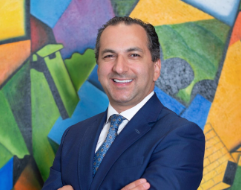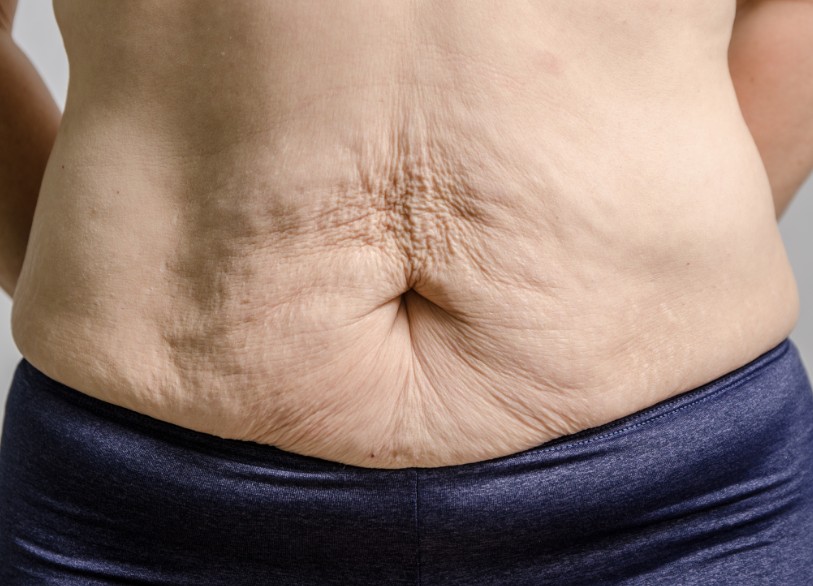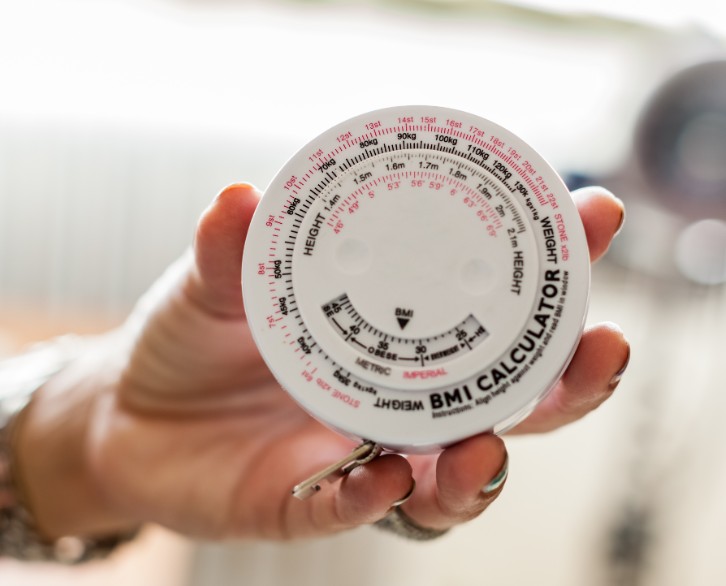
You’ve done the research. You’ve discussed options with your doctor, and decided on lap-band surgery. Congratulations – it’s a big decision, and a big step forward in your weight-loss journey.
That’s the big picture, but now you’re wondering about the details. How can you best prepare for surgery? What will recovery be like? And how fast will you lose weight?
Here’s a look at what to expect.
In the weeks before your lap-band surgery
When you decide to have weight-loss surgery, you commit to a series of medical appointments and lab tests, and a number of lifestyle alterations. What you may not know is that some doctors (and some insurance companies) recommend that those lifestyle changes begin before surgery. Research shows benefits to losing some of your body weight before the procedure, including a lower risk of surgical complications and a better long-term weight-loss outlook.
Losing this weight can be difficult – after all, if it was easy, you wouldn’t be preparing for bariatric surgery – but your doctor can give you guidelines that can help. His or her recommendations may include some or all of the following:
- Eliminating high-carbohydrate foods, such as breads, crackers, potatoes, pastas, rice, cookies, cakes, and drinks sweetened with sugar
- Avoiding processed foods, fast food, fried foods and foods with sauces
- Eating small amounts of lean protein, vegetables and fruits
- Adding protein powder or shakes to your diet
- Using low-fat or fat-free dairy
products - Drinking at least 64 ounces of water a day (that’s eight 8-ounce glasses)
- Learning to eat slowly and notice signs of fullness
- Avoiding alcohol
- Quitting smoking
- Taking a vitamin and/or mineral supplement daily
- Beginning or increasing your daily activity by 10 minutes
It’s not a simple list or an easy regimen, but it will help reduce your body fat, reduce the size of your liver (an enlarged and fatty liver is common in bariatric patients and can increase the risk of complications), protect your muscle mass, help you heal after surgery, and begin getting used to the diet you’ll follow after your recovery.
Right before your bariatric surgery
Plan to take several days off work, or, if you’re a stay-at-home parent, have someone there to help you with the children and household needs.
In the days immediately before surgery, your doctor may put you on a pre-operation liquids-only diet. You’ll want to stock up on the post-op foods that he or she has approved. They will include clear liquids and broths, soups, sugar-free popsicles, and other low-calorie, sugar-free foods.
Depending on what time of day your surgery is scheduled, you most likely won’t be able to eat or drink anything after midnight the night before.
Lap-band recovery time: What to expect right after surgery
When you wake up, your surgeon will have secured the lap-band around the top part of your stomach laparoscopically; this means you’ll only have a few small incisions (less than an inch long) in your abdomen. In addition, you will have a small port in your abdominal wall, which the doctor will later use to adjust the gastric band. You’ll spend one to two days in the hospital and can have medication for any pain or discomfort. Your diet after weight loss surgery will be restricted to small amounts of liquid in the beginning and progress slowly toward soft foods and, quite a bit later, small bites of lean protein.
You may experience nausea, indigestion, vomiting, dehydration and/or constipation. All are normal side effects and should go away as your body recovers.
Returning to work a week after surgery is typical; however, it may take up to six weeks for you to resume all your normal activities.
In the weeks and months after your lap-band surgery
A few weeks after your surgery, you will have your first lap-band adjustment or “fill.” Your doctor will inject saline into the port in your abdominal wall, which tightens the band. That tightness controls how quickly food moves from the upper to the lower part of the stomach, and is how the band makes you feel full sooner. You may have these adjustments at certain points over time, including when you have reached a plateau. They aren’t painful.
How fast do you lose weight after lap-band surgery?
Weight loss from this point forward can be about two to three pounds a week. Over the long term, this will slow down, and may settle in at about a pound per week. In the first year post-surgery, the average weight loss is 40 percent of your excess body weight (excess weight is defined as the pounds higher than your ideal weight). You may lose another 10 to 20 percent in the second year. Your doctor can help you estimate your possible loss.
In the months after your surgery, you will be planning meals, shopping wisely, preparing healthy foods, drinking the proper amount of liquids, and avoiding a lot of foods you ate freely before your surgery. You will be exercising more than you used to. You may sometimes feel the need to “cheat” and will want to understand the feelings behind this. You may need a support system larger than friends and family because losing weight can be an emotional journey that brings up feelings of vulnerability and frustration, among others.
No bariatric surgery has guaranteed results; doctors are careful to caution their patients about expectations and statistical averages. The lap-band is your partner in weight loss, but it doesn’t do the hard work for you. However, achieving your overall goals of substantial weight loss and increased health should be your guiding star.
Learn more about bariatric surgery
The Soma Weight Loss clinic in Los Angeles has worked with thousands of patients and performs all types of weight-loss surgery. Their program includes regular follow-ups, nutrition and exercise guidance, a support group and a patient coordinator. To find out more or schedule a free consultation, call 855-766-2411 (855-SOMA-411) or click here.




